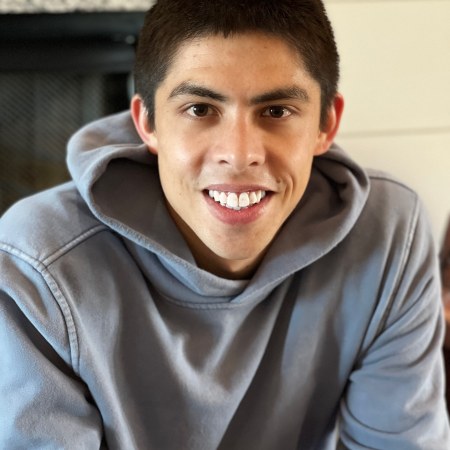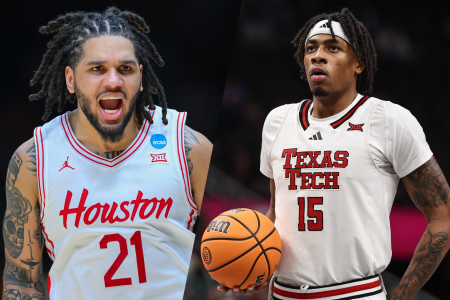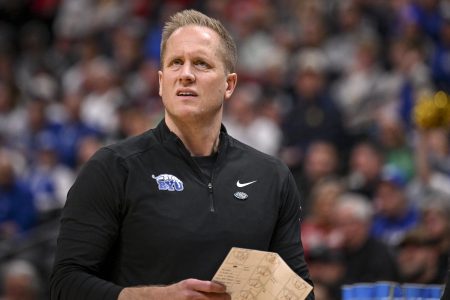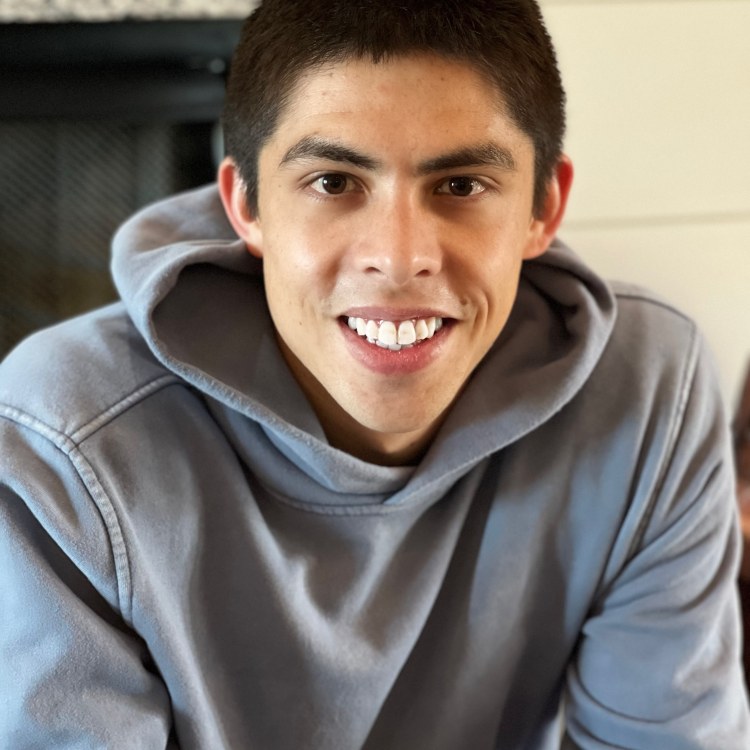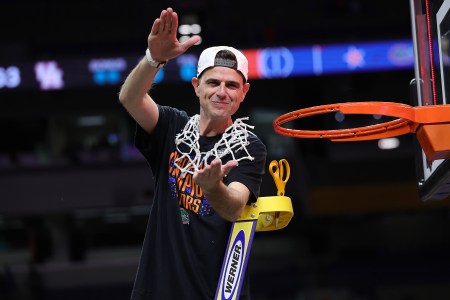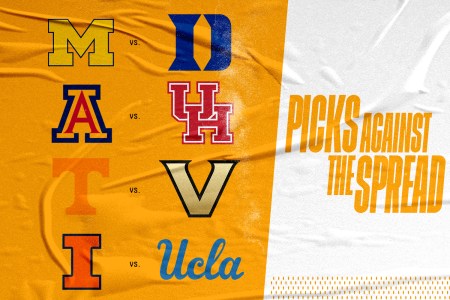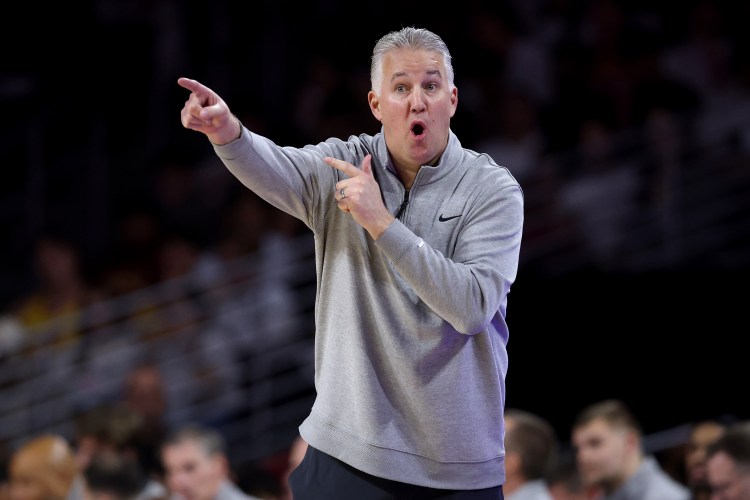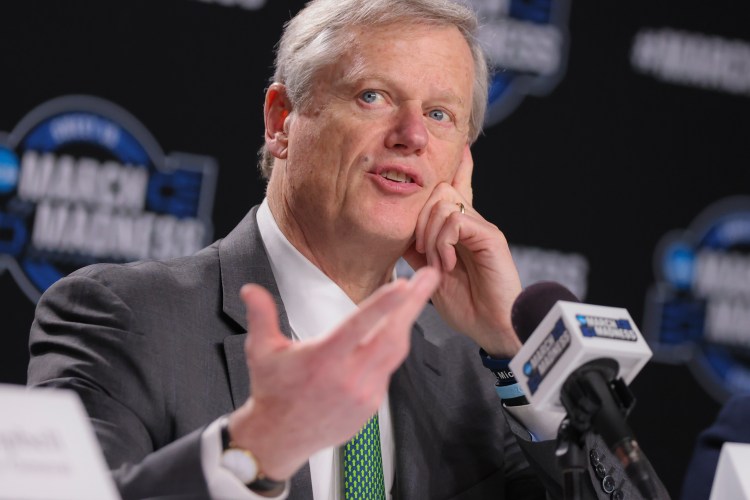A long, global journey led Alex Jensen back to where it all began.
In mid-March, Jensen was officially introduced as the new head coach of the men’s basketball team at the University of Utah, his alma mater. A dominant forward in the late 1990s, Jensen helped lead the Runnin’ Utes to the 1998 national championship game and was named 2000 Mountain West Player of the Year. He averaged 9.6 points, 6.7 rebounds and 2.6 assists in four seasons under Rick Majerus.
“I had a lot of good memories here,” Jensen tells Hoops HQ. “And I know, personally and basketball-wise, that I learned a lot and grew a lot, which had a big effect on who I am today. There’s a story that I remember, that I wouldn’t have thought about for years, every day that kind of ties in with what I’m going through at the moment or trying to do with the program right now.”
Big 12 Roster Reshuffle: The Current State of Every Team’s Lineup
Will Houston run the table again in 2025-26? How far will JT Toppin lead Texas Tech? Can Darryn Peterson turn things around at Kansas? Breaking down every school in the conference.
Since Jensen’s playing days, Utah has switched conferences twice, jumping from the Mountain West to the Pac 12 in 2011 and from the Pac 12 to the Big 12 in 2024. The Utes have reached the NCAA Tournament just three times (2009, 2015, 2016) in the last 20 years. Over that stretch, they’ve suffered nine losing seasons.
Jensen’s hiring is part of a new trend in the coaching world: former NBA assistants are moving down to take over college programs. Jensen was with the Utah Jazz for a decade and spent the last two seasons on the Dallas Mavericks staff. BYU’s Kevin Young, Florida State’s Luke Loucks and Iona’s Dan Geriot all transitioned from the NBA level to the college ranks as well.
Of course, with the explosion of the transfer portal and NIL — and the start of the new revenue sharing system following the approval of the House settlement — college basketball is operating a lot more like a professional league these days. NBA experience is beneficial to navigating the modern landscape, particularly the recruiting process. Jensen also had a seven-year playing career overseas (Turkey, Spain and Japan) and coached in Germany and the NBA G League. He was named the G League Coach of the Year in 2013.
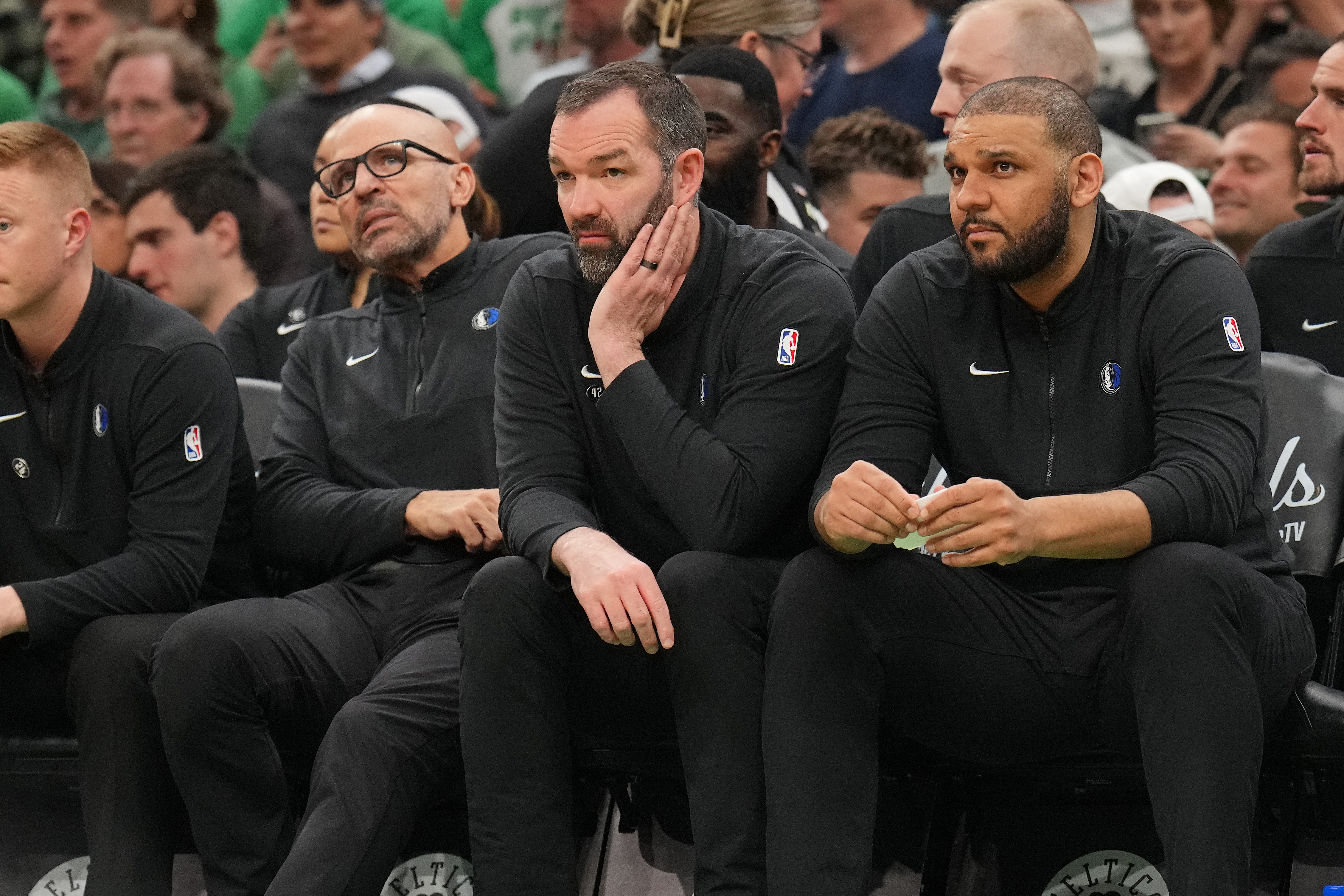
“I’ve been lucky that my basketball journey has taken me to different places and different situations, so I think it’s helpful,” Jensen says. “I think it’s good to have a well-rounded (staff) because there are certain aspects of the NBA, the G League, Europe and college that all are relevant.”
Jensen was still going through the 2024-25 campaign with the Mavericks when talks with Utah intensified. He wanted to stay focused on his present job and not rush to any conclusions about his future. Mavericks general manager Nico Harrison and head coach Jason Kidd were very supportive throughout the process; in fact, Jensen relied heavily on both for advice.
“I knew if I took the job that I wasn’t coming here to try to win and then go somewhere else,” Jensen explains. “And I wanted to be really sure about it. So it took quite a few days and weeks to come to that conclusion.”
Upon accepting the position, one of Jensen’s first priorities was to add a general manager. He reached out to Wes Wilcox, who has spent the last five seasons as the assistant general manager for the Sacramento Kings, assuming it was a long shot. Wilcox was also the GM of the G League’s Canton Charge when the team hired Jensen to be its head coach in 2011. Much to Jensen’s delight, Wilcox was on board. He officially joined the staff in April.
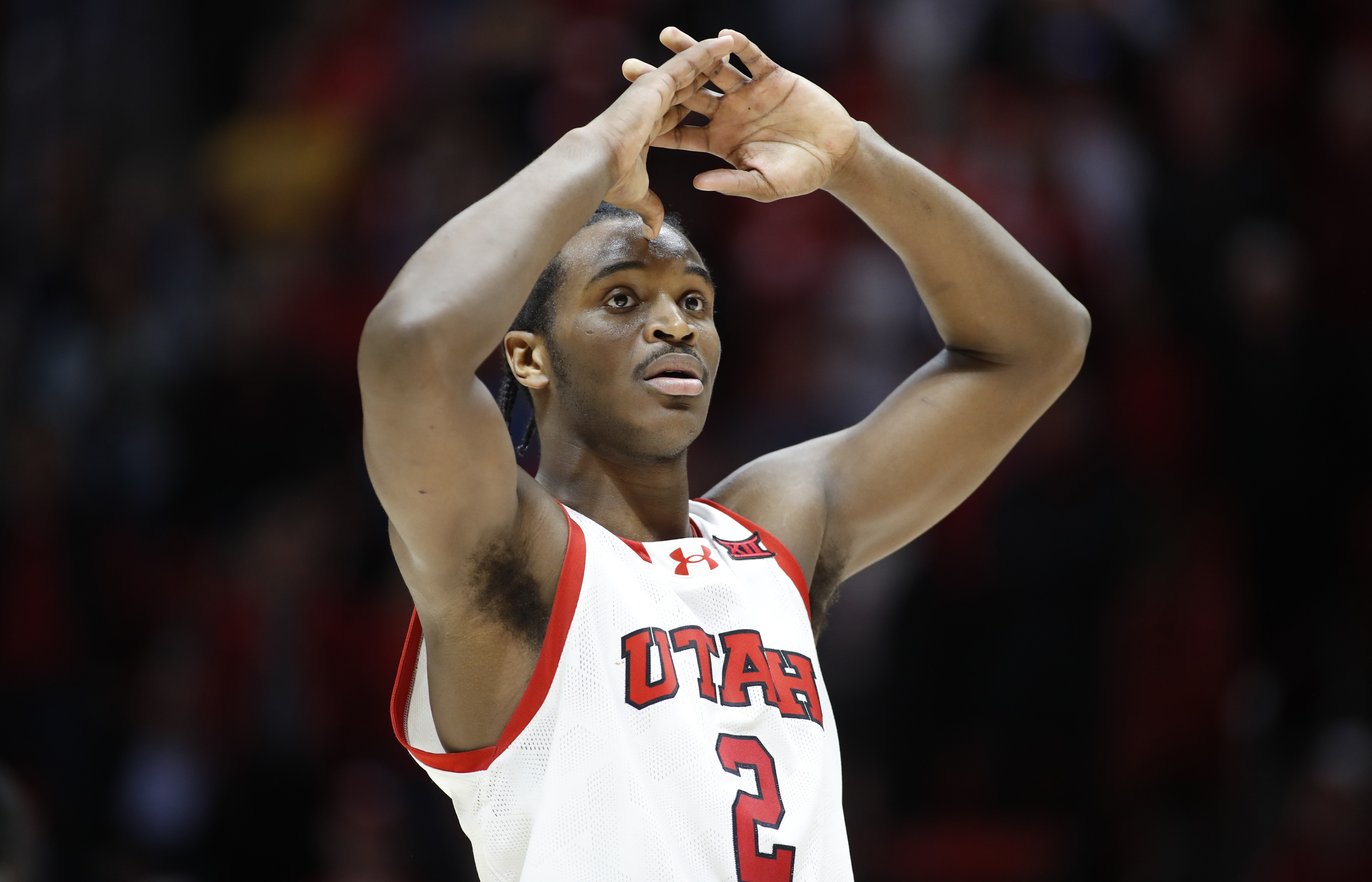
In general, Jensen’s approach to running the program is very methodical. He prefers to tackle one task at a time. Despite the chaotic nature of the offseason, he never wanted to act impulsively. Every decision had to be made with care and intention. Utah was faced with a significant roster rebuild. After going 16-17 and finishing 11th in its debut season in the Big 12, the team has just three returning players: 6-foot-9 junior forward Keanu Dawes, 6-foot-9 redshirt freshman forward Ibi Traore and 6-foot-2 sophomore guard Jerry Huang.
Wilcox and assistant coach Raphael Chillious, a former personnel evaluator for the Memphis Grizzlies, would meet late at night at the Utes’ facility to watch games and talk about players. Jensen would call in whenever the Mavericks were done for the day and they would spend hours deliberating which transfers to pursue. Once the portal opened, Utah tried to show urgency, while maintaining Jensen’s meticulous approach. “As we put together the roster, it was the same thing as with the staff — one piece at a time,” Jensen says. “And then it led to the next piece. The next piece became more clear and how they fit together. And the great thing about Wes is, he’s done it. He’s put together rosters. And going back to my experience in the G League, you should build a roster positionally, even personality-wise.”
The staff’s collective NBA experience can also be attractive to recruits. Several big-name prospects have committed to BYU over the past two years, including projected top-three pick in the 2026 NBA Draft A.J. Dybantsa, in large part because they are confident in Kevin Young’s ability to prepare them for the next level. Young was a coach in the NBA for eight seasons, four with the Philadelphia 76ers and four with the Phoenix Suns.
BYU’s NBA Model: There Is a “Plan for Everything”
Every aspect of the Cougars’ team — analytics, nutrition, a rim-and-3s offense — follows a blueprint that Coach Kevin Young installed after six years as an NBA assistant
“We don’t necessarily sell it (by saying), ‘Come here and you’ll go to the NBA,’” Jensen says. “But you know, that’s where I’ve been for the last 15 years. It’s where my GM has been for the last 25. When we liken a player to somebody else or a situation, that’s a lot of where our experience comes from. So it’s kind of natural.”
Utah signed a number of promising talents in the portal. Its transfer class is highlighted by Jahki Howard, a 6-foot-6 sophomore forward from Auburn, and Elijah Moore, a 6-foot-4 sophomore guard from Syracuse. Both players are former high school standouts — at their respective positions, Howard was ranked 20th in the nation and Moore checked in at No. 9, per 247Sports — who played limited roles as freshmen last season. “Obviously the talent is there,” Jensen says. “That’s something we talked about during the recruiting process and after we signed them: ‘The potential is there and we have a plan for how we feel we can help you reach that potential.’”
The Utes also brought in a pair of highly capable scorers in 6-foot-3 junior guard Terrence Brown (20.3 points per game at Fairleigh Dickinson) and 6-foot-2 senior guard Don McHenry (17 points per game at Western Kentucky). To bolster their frontcourt, they added 6-foot-7 junior forward Seydou Traore from Iowa, 6-foot-8 senior forward James Okonkwo from Akron and 6-foot-8 fifth-year forward Babacar Faye, a teammate of McHenry’s from Western Kentucky. Faye was held to just 10 games in 2024-25 due to injury, but he averaged 15.2 points and 7.8 rebounds.
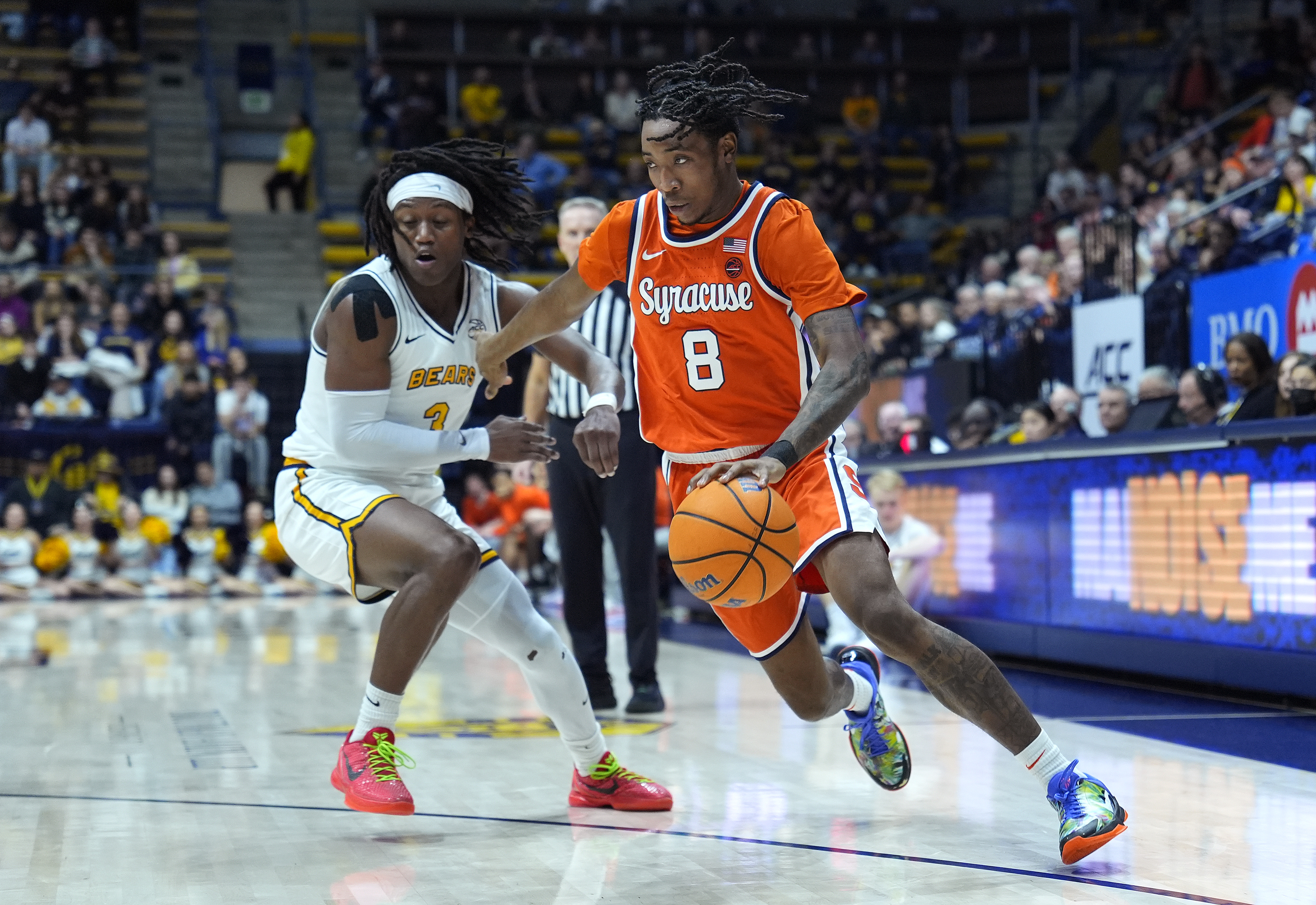
Given the uptick in international players joining college programs, Jensen’s vast network overseas has already proven valuable. “Having played in Europe and having teammates from a lot of different countries, you get on the phone with a kid from Europe and you can kind of have a common ground there,” Jensen says. Utah signed 6-foot-6 German guard Jacob Patrick, a 21-year-old sharpshooter who played four seasons with MHP Riesen Ludwigsburg in the BBL. Jensen previously served as an assistant coach for the German men’s national team.
Overall, Jensen is excited about the versatility of the group his staff has assembled. He didn’t guarantee minutes to any of his recruits and will take the summer to evaluate various combinations and shape his rotation. One thing he knows for sure is that he wants his team to compete with freedom and confidence. He won’t be calling plays every time down the court; instead, his players will be trusted to be creative and utilize their individual skill sets, even if it results in a mistake or two. The worst offense, in Jensen’s mind, is being tentative.
As he continues to rebuild the program, Jensen won’t be rushed. It may take time for everything to come together, but he is in it for the long haul. “A phrase I’ve often used with recruits and staff — I go back to that I’m going to be deliberate,” he says. “I’m going to do it the right way or what I think the right way is. There are not going to be shortcuts.”
